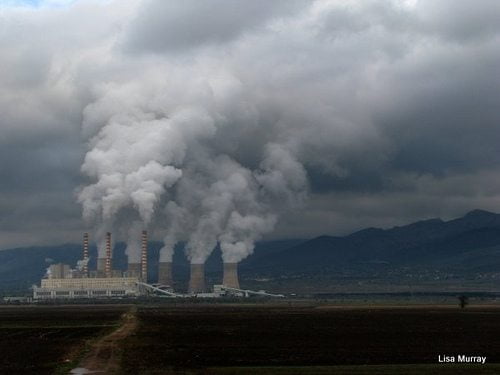

Energy
Fossil fuel subsidies preventing transition to low-carbon economy
The massive subsidies given to the production and consumption of fossil fuels must be curbed if the world is to complete a transition to a low-carbon economy, UN experts have warned.
Speaking at an event co-organised by the UN Environment Programme (UNEP) in Nairobi on Wednesday, experts claimed that the support given to oil, gas and coal was contributing to fiscal instability and undermining efforts to prevent climate change.
The subsidies given to renewable energy have proved controversial in recent months, when so-called “green levies” were blamed for rising winter energy bills in the UK and subsequently cut by the government.
Earlier this week, the UK government also announced plans to review the subsidies given to the solar industry, provoking fear over losses of jobs and investment.
However, the subsidies given to clean energy pale in comparison to those given to fossil fuels.
According to the International Energy Agency (IEA), in 2012 direct fossil fuels subsidies totalled $544 billion (£323 billion), while those for renewables amounted to $101 billion (£59.7 billion).
These subsidies come in many different forms, and are considerable even in the developed world. One separate bit of research by the Overseas Development Institute estimated that rich governments subsidise every tonne of carbon by an average of $7 (£4.14).
Taking into account indirect subsidies as well, such as the failure to charge for pollution and climate change, the International Monetary Fund (IMF) estimates the actually subsidies given to fossil fuels amount to around $2 trillion (£1.19 trillion) – almost 3% of global GDP.
The IMF calculates that cutting this support would cut global emissions by 13%, providing a significant boost to decarbonisation efforts while also cutting public costs.
In a statement given at the Kenyan conference, UN under-secretary-general and UNEP executive director Achim Steiner said, “Fiscal policies are of particular importance in a green economy transition.
“Confronted by a fiscally constrained world, government reforms might appear to be a daunting challenge.”
“However, it is important to note that fossil fuel subsidies cost countries precious funds. For example, they divert government resources from pro-poor spending in Africa, where governments spend an estimated 3 per cent of GDP – equivalent to their total health care allocation – on fossil fuel subsidies.”
In an interview with German newspaper DW, Dr Detlev Schreiber of Germany’s development agency GIZ – another organiser of the Nairobi conference – added, “In countries with heavy subsidies for fossil fuels, renewable projects are just niche projects.
“In countries that do not have fossil fuel subsidies, renewables do very well. According to the International Energy Agency, the elimination of fossil fuel subsidies will be the single most effective measure for climate change mitigation.”
These calls come in the wake of the Intergovernmental Panel on Climate Change’s latest review on the mitigation of global warming. In the report, scientists warn the use of fossil fuels must be drastically cut to avoid the worst impacts of climate change while investment in renewables must rapidly increase.
Photo: Lisa Murray via Flickr
Further reading:
MPs call for cuts to fossil fuel subsidies, not green levies
Report calls for ‘incentives to change’ after fossil fuels received $500bn of subsidies in 2011
Abandoning ‘environmental taxes’ on energy bills will harm your health and wealth
EU climate commissioner calls for development banks to cut ties with fossil fuels


 Environment12 months ago
Environment12 months agoAre Polymer Banknotes: an Eco-Friendly Trend or a Groundswell?

 Features11 months ago
Features11 months agoEco-Friendly Cryptocurrencies: Sustainable Investment Choices

 Features12 months ago
Features12 months agoEco-Friendly Crypto Traders Must Find the Right Exchange

 Energy11 months ago
Energy11 months agoThe Growing Role of Solar Panels in Ireland’s Energy Future


























